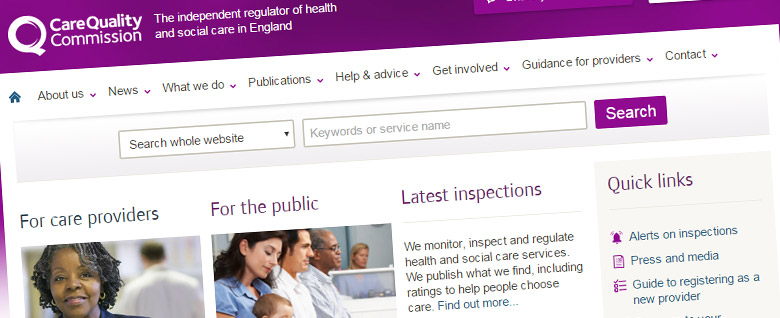It was recently reported that the CQC prosecuted a care home provider in the Magistrates Court for failing in its duty to protect people in its care, exposing them to the risk of sexual abuse.
The case concerned an allegation that the care home had allowed a male resident, with a history of sexual assaults, the freedom to prey on other vulnerable residents and that they had not provided the constant, one-to-one supervision that was necessary. In particular, it was alleged that this male resident had followed one resident, with a limited mental capacity, to their room and raped them at the end of 2015. This was reported to the police, who decided not to prosecute. It is reported that this decision was taken partly due to the alleged victim’s mental capacity and a lack of evidence.
The district judge in the Magistrates Court fined the care home provider £300,000 and ordered them to pay the CQC’s legal costs of £141,000.
The CQC's chief inspector of adult social care, Andrea Sutcliffe, commented: "It has taken a long time to bring this prosecution to a conclusion but the outcome proves that it has been worth the effort and dedication of CQC's inspection and legal teams. Providers should be clear that if people are exposed to harm through their failure of care we will take every step we can to hold them to account."
The CQC has a wide range of criminal enforcement powers which include the power to prosecute and issue fixed penalty notices or simple cautions. These powers are, however, limited to registered providers and certain individuals who work for providers such as directors; managers; the secretary of a corporate body, or an officer of an unincorporated association or member of its governing body.
As can be seen from this case, the fines issued in CQC prosecution cases can be significant and in some cases, they can severely affect a care provider’s ability to continue to invest in and maintain the business for the benefit of the remaining residents. This is because, for some offences, the Magistrates Courts have the power to order unlimited fines.
Is there a time limit on a CQC prosecution?
A common query of such prosecutions is the length of time that has passed before a prosecution is instigated and whether the CQC can, in fact, prosecute a care home provider after such a long period of time. Unfortunately, Section 90(2) of the Health and Social Care Act 2008 confirms that the CQC may bring a prosecution within a period of 12 months from the date on which sufficient evidence to warrant the prosecution came to their knowledge. However, this is limited to no more than three years after the commission of the relevant offence.
It is therefore worrying for those care homes who have had an incident which triggers an investigation by the CQC, with the potential for that investigation to take up to three years before any criminal proceedings are even issued. In cases where a resident has passed away, a coroner’s inquest may also take place and in some cases, this could lead to a police investigation; safeguarding investigation; or civil claims for compensation by the family and relatives of the particular resident.
What should I do if I am facing a criminal prosecution by the CQC?
It is vital that anyone facing criminal enforcement action, particularly a CQC prosecution, seeks specialist legal advice as soon as they become aware of a potential criminal investigation. Early action and a measured and careful approach to the investigation, and any response made, can limit the impact of a prosecution; or even prevent it from proceeding to court at all.
In any event, a response should only be made to the CQC, particularly where it is made under caution, after a full consideration of the evidence against you and the consequences of the offence. Where the evidence is stacked against you, an early admission may be the best way forward, with strong mitigation to assist in trying to minimise any fine imposed. In addition, it is vital that anyone subject to a prosecution engages in the proceedings and is appropriately represented at Court in order to protect their interests and long standing reputation in the care sector.
If you are facing a criminal investigation or prosecution by the CQC, you can contact our specialist CQC solicitors now on 01616 966 229 who are on hand to assist you.




Comments